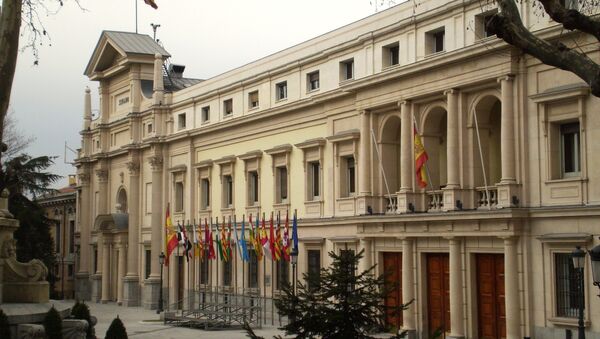Members of both the lower and upper chambers, Congress of Deputies and Senate, respectively, will be elected the same day for four-year terms. The election campaigns began on Thursday and are supposed to finish at midnight of the election day.
Spain had to call a snap general elections, the fourth in four years, after the previous one in April ended inconclusively. Back then, the Spanish Socialist Workers' Party (PSOE) of the acting Spanish prime minister, Pedro Sanchez, won the vote but but fell short of an outright majority. Their attempts to secure support from other political parties, in particular the anti-austerity Unidas Podemos party, yielded no results either.
The other political parties on the landscape include the conservative People's Party, the populist Vox, the centrist Ciudadanos, the far-left Mas Pais, and the pro-independence Catalan coalition of Republican Left of Catalonia–Sovereigntists, among others.
Rise of VOX
There have been many polls in Spain over the last few months, but the latest ones this week indicate that the great expected surprise could very well be the rise of VOX, a right-wing party founded in 2013. It should become – if polls are to be believed – the third party in Spain, with more than 15 percents of the votes. For the rest, Spain's vote on Sunday is almost certain to produce a deadlock again, with no party set to get a majority.
It will be the fourth time in four years that the Spaniards have to go to the voting booth. The election was decided on 17 September, when Sanchez presented his resignation to King Felipe VI. The Spanish legislation imposes to the political class a timing of 2 months in order for the party which has come first to form a government. It is now always a coalition government, because the bipartite system of the past between left and right, the PSOE (Socialists) and PP (Partido Popular – Christian Democrats), has disappeared.
This is not the case in several other countries in Europe, such as Belgium, which has still not managed to form a federal government one year after the last general elections.
In Spain, there should be about 38 million voters and the vote turnout is generally high, but the vote is not obligatory. The absolute majority in parliament (the Cortes) is 176 seats out of 350.
Left and Right Failed to Form a Stable Government
On the left, even if the Socialist PSOE (123 seats) had been able to agree on a coalition deal with Podemos (35 seats), they would still be missing ten seats to reach a majority. This means they would need the support of smaller left-wing parties such as the communists, the Catalan independentists and the Basque Nationalist Party.
In Sanchez's last effort at getting the investiture in July 2019, which he lost, the Catalans of Esquerra Republicana voted for Sanchez.
This is the first possible coalition, a “Frente Popular," a coalition of the left (178 seats) to reach more than the 176 seats needed for an absolute majority.
On the right, the other option for Pedro Sanchez was an alliance on his right but he would not rule with VOX, so it would be theoretically limited to Ciudadanos (57 seats) and the PP (66 seats), which was way too short a score for a majority government. The parties on center-right refuse to associate with the nationalists in Catalonia or the Basque country.
Issues That Will Decide the Vote
The main issues of these elections are the regional issue, with the trial of the Catalan separatist government in Madrid, where the High Court judges distributed 100 years in prison to the former members of the Catalan separatist government that remained in Spain. The former Catalan president, Carles Puigdemont, faces a new request for extradition by the Spanish government.
There have been large demonstrations in Barcelona, for independence and against independence from Spain. Following the polls, the Catalans who are in favor of remaining in Spain have a slight advantage on the separatists.
The other main issue is immigration, with a new flare-up of illegal migration crossing the strait of Gibraltar by speedboats by the hundreds. The thousands of illegal migrants, mainly from sub-Saharan Africa, land on the beaches and rush inland before the police can intercept them.
There is also the difficult situation in the African enclaves of Ceuta and Melilla, where Africans try desperately to cross into Spain despite the barbed wire fences. The government of Pedro Sanchez is favorable to migrants, and has even suppressed the use of barbed wire in Ceuta and Melilla. This lax attitude of the Spanish socialists has caused their demise in the regional elections in the southern province of Andalucia, and the arrival of the right in power there.
Finally, there is the political decision taken by Pedro Sanchez to unearth the body of Francisco Franco, the dictator, who died in 1975 and was buried in a mausoleum, in the Valle de los Caidos and to transfer the body to a cemetery in the suburbs of Barcelona, at the risk of re-awakening the old tensions between the left and the partisans of Franco who re-established the constitutional royalty. Sanchez is supported for this highly symbolic gesture by the republicans and the left in general, but despised for this "demagogic decision" by the parties on the center right and right.
On the economic front, the economy of Spain is doing quite well compared to many European countries. So, it is not expected to be a decisive factor in the choice made by the voters.


